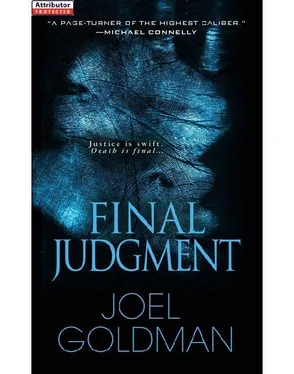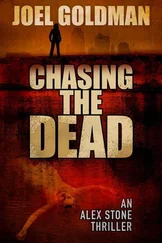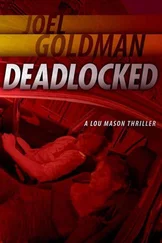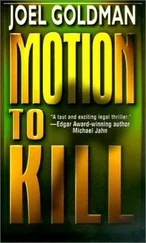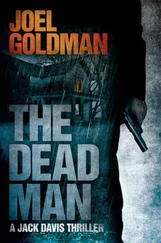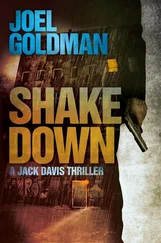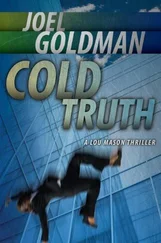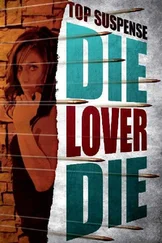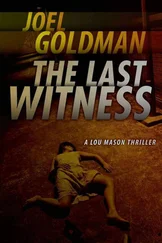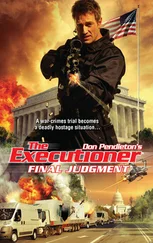Joel Goldman - Final judgment
Здесь есть возможность читать онлайн «Joel Goldman - Final judgment» весь текст электронной книги совершенно бесплатно (целиком полную версию без сокращений). В некоторых случаях можно слушать аудио, скачать через торрент в формате fb2 и присутствует краткое содержание. Жанр: Криминальный детектив, на английском языке. Описание произведения, (предисловие) а так же отзывы посетителей доступны на портале библиотеки ЛибКат.
- Название:Final judgment
- Автор:
- Жанр:
- Год:неизвестен
- ISBN:нет данных
- Рейтинг книги:3 / 5. Голосов: 1
-
Избранное:Добавить в избранное
- Отзывы:
-
Ваша оценка:
- 60
- 1
- 2
- 3
- 4
- 5
Final judgment: краткое содержание, описание и аннотация
Предлагаем к чтению аннотацию, описание, краткое содержание или предисловие (зависит от того, что написал сам автор книги «Final judgment»). Если вы не нашли необходимую информацию о книге — напишите в комментариях, мы постараемся отыскать её.
Final judgment — читать онлайн бесплатно полную книгу (весь текст) целиком
Ниже представлен текст книги, разбитый по страницам. Система сохранения места последней прочитанной страницы, позволяет с удобством читать онлайн бесплатно книгу «Final judgment», без необходимости каждый раз заново искать на чём Вы остановились. Поставьте закладку, и сможете в любой момент перейти на страницу, на которой закончили чтение.
Интервал:
Закладка:
Mason also knew that Samuelson wouldn’t make a move until he knew what was happening with the murder investigation. The corpse in Fish’s trunk could lead to valuable information for Samuelson. Samuelson would want a direct feed from the police.
Griswold and Cates would want the same from the FBI. The Bureau’s file on Fish could be a rich source for motive and the identity of the murder victim.
Mason knew that neither law enforcement agency would get all that they wanted from the other because the relationship between cops and the FBI was dysfunctional on a good day. With every reason to work together, they usually didn’t unless forced.
Cops thought the FBI didn’t know their ass from third base when it came to investigating street crime. The Bureau was equally certain that the police were too far behind the twenty-first-century law enforcement curve to ever catch up. Their sibling rivalry only got worse when a turf battle broke out, and Avery Fish guaranteed such a conflict.
The feds would try to leverage Fish’s mail fraud charge if they thought Fish knew something they could use to nail someone else. The cops might want Fish for murder. Neither would give up the prize for the other. Both would designate a liaison with the other to coordinate their investigations, either Griswold or Cates for the cops and probably Dennis Brewer for the FBI. Each liaison would talk with the other just enough to keep up appearances, exchanging scant information and less trust.
All of which was good news for Mason, who believed in the military salute-confusion to the enemy. That’s why Mason spent the next morning cleaning off his desk instead of bird-dogging Pete Samuelson or nagging Griswold and Cates for information.
He had mail to open and answer, motions to file and respond to, bills to collect and pay. It was the life of the solo practitioner. He was a one-man band and it suited him just fine. He’d practiced law in other firms, large and small, but settled into his own practice five years ago. He liked the freedom to pick and choose his cases, knowing that he could hold a partners’ meeting in a phone booth or bathroom.
Technology allowed him to get by without a secretary. His Aunt Claire, who had raised him from the age of three, had insisted that he take typing in the eighth grade, the single most useful course he ever took. That was before computers replaced slide rules as the indispensable educational tool.
Mickey Shanahan had been the only person on Mason’s payroll, working as his legal assistant. Mickey had hated the job title, preferring wingman because it had more Gen-X appeal. The position was currently open since Mickey had joined the staff of Josh Seeley when Seeley was elected the previous November as Missouri’s newest United States senator. Mickey hungered for a career in politics like a junkie with a jones on.
Abby Lieberman, Seeley’s chief of staff, had hired Mickey. Mason carried his own pained longing for Abby. They had been in love, still were as far as Mason was concerned. Abby didn’t deny it. She just said love wasn’t enough to overcome Mason’s penchant for violent cases.
She could accept that he defended people charged with heinous crimes, but she couldn’t live with the violence that poured out of his cases and into his life and hers. More than that, she couldn’t understand why he so willingly dove into the dark water floating around his cases. He couldn’t explain something to her that he scarcely understood himself.
He hadn’t seen Abby since they had dinner just after the election in November, four months ago. She’d told him she was moving to D.C. Driving home, he had turned on the radio, catching Tina Turner asking, What’s love got to do with it? The lyric stuck with him, surfacing whenever he thought of Abby. He shoved the song out of his head one more time and refocused on the stacks of paper littering his desk.
One of the things Mason liked most about his law practice was its sheer unexpectedness. The uncertainty of where the next case would come from, the unpredictability of the story the client would tell him, the jaw-dropping impact when most of it turned out to be true. None of which prepared him for the knock at his door.
“It’s open,” Mason called out, looking up from his desk.
Vanessa Carter opened the door, standing in the frame, waiting a moment to be certain that Mason recognized her. She was black, handsome though not beautiful, with a close-cropped Afro flecked with traces of silver. She was neither slim nor thick, but solidly midlife, dressed in a conservative navy suit, a long winter coat slung over one arm.
The last time Mason had seen her was in her chambers. She had been Judge Vanessa Carter then, a conservative judge on everybody’s short list for promotion from the state trial court to the federal bench, and she had been presiding over the murder case of Wilson “Blues” Bluestone, Jr.
Blues was Mason’s closest friend, landlord, and tour guide to the world of violent dispute resolution. At the time, he was being held without bail for a murder he hadn’t committed. Mason had asked for a gangland favor to pressure Judge Carter into letting Blues out on bail so he could help Mason find the real killer.
The favor was given and Mason cleared Blues’s name. Judge Carter quit the bench the day she released Blues, rumors trailing her like poisonous vapors. The last thing she told Mason still haunted him. She would have granted bail anyway.
In the years since then, she had quietly rebuilt her career as a private judge specializing in mediation and arbitration, a low-cost alternative to expensive civil litigation. The practice provided a second career for retired judges, and Judge Carter had gradually won a significant following with her balanced handling of cases.
Mason had taken comfort in her success, his guilt assuaged but not forgotten. He handled a few civil cases from time to time, and when the parties elected alternative dispute resolution, he’d always managed to convince the opposing lawyer to select someone besides Judge Carter. While Kansas City may seem like a small town to those who didn’t know it, it was more than large enough for Mason not to have crossed Judge Carter’s path since that last hearing in her chambers.
He looked at her now and didn’t know what to say. She filled the void.
“We have a problem,” she said.
NINE
“I’m being blackmailed,” Vanessa Carter told him.
She threw her coat onto Mason’s sofa, draping it over a stack of files Mason was storing against the cushions. She angled one of the low-slung round-backed chairs in front of his desk, sitting down with enough authority that Mason nearly rose and said, Good morning, Your Honor.
His clients always began by telling him they had a problem. His problem was helping them with their problem, but that didn’t make them the same problem. Their problems came down to freedom or prison, sometimes life or death. His problems were always legal, strategic, and pragmatic. Keep the client free or, at least, off death row. And get paid.
Vanessa Carter announced that she and Mason had a problem like it was a shared burden. Her simple declaration demanded his next question, one that hovered over his heart, taunting the long scar that dressed his chest. He suspected the answer, even knew what it had to be, but had to hear her say it.
“By whom?” he asked. His pulse quickened as he struggled to remain neutral.
“Somebody at Galaxy Gaming.”
She said it like she was pronouncing sentence on Mason, her words hitting him like a term of twenty-five years to life. There was no statute of limitations on some debts and Mason’s had just been called.
Galaxy Gaming had purchased the Dream Casino three years ago. It was a riverboat cash cow docked on the Missouri River at the spot where Kansas City had been born more than a hundred and fifty years earlier.
Читать дальшеИнтервал:
Закладка:
Похожие книги на «Final judgment»
Представляем Вашему вниманию похожие книги на «Final judgment» списком для выбора. Мы отобрали схожую по названию и смыслу литературу в надежде предоставить читателям больше вариантов отыскать новые, интересные, ещё непрочитанные произведения.
Обсуждение, отзывы о книге «Final judgment» и просто собственные мнения читателей. Оставьте ваши комментарии, напишите, что Вы думаете о произведении, его смысле или главных героях. Укажите что конкретно понравилось, а что нет, и почему Вы так считаете.
